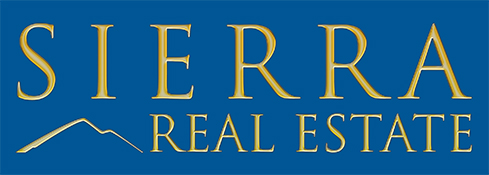In addition to its white sand beaches and laidback lifestyle, Australia’s remarkably robust property market has long been a draw card for international buyers.
And the good news for United States citizens is that entering the market is relatively easy, and has many advantages beyond simply diversifying your investment portfolio.
Why Australia?
Stability
- Legislation and the Australian Prudential Regulation Authority (APRA) ensure that banks lend responsibly, reducing the likelihood of real estate bubbles.
- Australia’s population growth is outstripping the construction of new homes, creating a lack of supply and supporting prices.
Ease
- There is no need to set up a company in order to purchase Australian property.
- Obtaining government approval to purchase newly built dwellings is relatively cheap and easy.
- The National Consumer Credit Protection Act 2009 provides robust safeguards.
Choice
- There is significant apartment construction taking place in most major cities.
- U.S. citizens can also purchase commercial property, including farms.
10 things you need to know
- FIRB eligibility. All Australian property purchases made by non-residents must be approved by the Foreign Investment Review Board (FIRB). It is crucial that you understand the restrictions and fees imposed by the FIRB for different types of properties before you begin the purchasing process, or you may be unable to complete the transaction.
- New dwellings. Houses and apartments that have not been previously occupied (or have been sold by the developer and occupied for less than 12 months in total) are usually approved without conditions.
- Established dwellings. Non-resident United States citizens are generally prohibited from purchasing houses and apartments that have been previously occupied. The FIRB may grant exceptions on a case by case basis but it’s important to seek advice before you begin the purchasing process. Temporary Australian residents are normally allowed to purchase one established dwelling to use as their place of residence while in Australia.
- Find a conveyance. Almost all Australian property buyers use a conveyancer (or solicitor) to complete searches on the property, facilitate the transfer of ownership and review the sales contract.
- Find a buyer’s agent. A buyer’s agent acts as your advocate on the ground in Australia. She/he can provide you with nuanced market information, assist with listings searches and can bid on your behalf at auctions. You may decide you do not need a buyer’s agent.
- Get mortgage pre-approval if required. Australia’s regulatory environment means US citizens seeking mortgages must meet strict criteria. Before you begin searching for a property, apply for loan pre-approval from a bank. In general, you will need at least a 30 per cent deposit unless you are currently living in Australia or are married to an Australian citizen.
- Search for a property. Use reliable, comprehensive sources when searching for property listings. Domain is Australia’s leading source of property news, advice and has the country’s best property app. Want to know what a property is worth? Domain’s Home Price Guide tool provides estimates of each property’s value (similar to Zillow’s Zestimates) as well as previous sold and rental data. Want to know about local schools? Domain’s School Zones Report has the information you need.
- Arrange a property inspection. If you are seriously considering purchasing an established dwelling, engage a builder, surveyor or architect to inspect the property and identify any potential structural or maintenance issues.
- Auctions. Auctions are much more popular in Australia than they are in the U.S. However, new properties (which are easier to purchase if you are an international buyer) are typically listed at a fixed price. If you are buying an established property as part of a temporary visa and do find yourself at an auction be sure to understand the process and pick a strategy that works for you.
- Finalizing the sale. Once you have reached an agreement with a real estate agent or an apartment developer, be sure to follow these eight steps.
Fees you need to know about
There are five key fees and taxes US buyers will face when buying property in Australia. The biggest are Stamp Duty, FIRB Fees and land tax. You can read up on them all here.
Beware of scams
In general, Australia is a very safe place to purchase property, with solid regulations and a relatively stable market. However, scams do occur. In general, be wary of purchasing property that has not been advertised on a reputable website such as Domain or is being sold “off market” (i.e., without a real estate agent).
Related:
- Expert Advice for Chinese Home Buyers
- 5 Predictions for Renters and Home Buyers in 2017
- Moving From a Home With 2 Bedrooms to 3 Costs an Extra $450 a Month
Note: The views and opinions expressed in this article are those of the author and do not necessarily reflect the opinion or position of Zillow.
